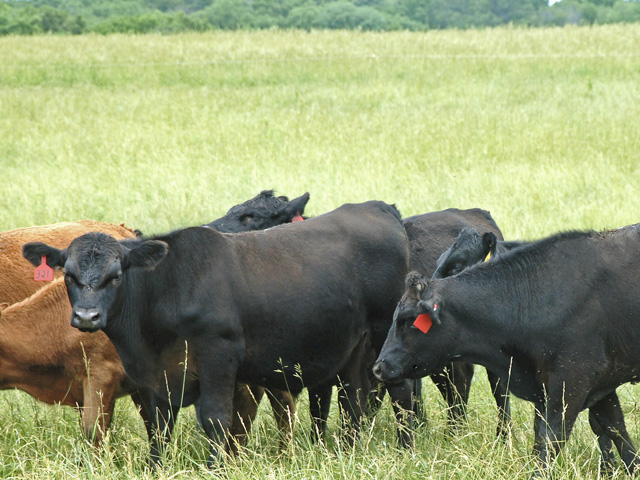Ask the Vet
Amino Acids and Beef
Question:
I raise calves each year to butcher for family and friends. I have a question about essential amino acids. I know we need to get these into our diet to build muscle. Humans can't build them, so they have to come from our diet. Do animals have essential amino acids? If not, and they are herbivores, how do they get them?
P[L1] D[0x0] M[300x250] OOP[F] ADUNIT[] T[]
Answer:
First, let's discuss amino acids. They are known as the building blocks of proteins. Amino acids are large molecules made up of carbon, oxygen, hydrogen and nitrogen in varying amounts and locations. Some also contain sulfur.
There are 20 (some say 21 or 22) different amino acids that are combined to make different proteins. Essential amino acids, despite their name, are not more important than the others. The term is used for those that an animal can't synthesize in its body.
Humans have nine amino acids they cannot manufacture. Cattle, too, have amino acids they cannot manufacture. But cattle have an ace in the hole, the remarkable rumen.
Rumen microbes are very efficient at taking forages and making amino acids and very high-quality proteins. Between forages and the rumen bugs, ruminants do not need supplemental amino acids.
We all want to see increased production from our herds. We put our calves on feed, develop replacement heifers or bulls; and dairy cows produce milk. All this demand often does require supplementation of carbohydrates, proteins and minerals to reach optimum production levels.
Ruminant nutrition is extremely complex, and we are learning more about it all the time. Many feed companies today produce rations balanced for different production goals. These rations can vary greatly in composition. For example, a starting ration for calves may be very different from a finishing ration used in a feedlot. If you are mixing your own ration, take these different needs into account and consult with a nutritionist.
As for the end product, we as cattle producers are providing, beef protein is high quality. It contains all nine essential amino acids needed for the growth and maintenance of our bodies. Its amino acid profile is almost identical to that of our own muscles. Beef is an important part of a balanced diet. And, best of all, it tastes great!
(c) Copyright 2021 DTN, LLC. All rights reserved.






